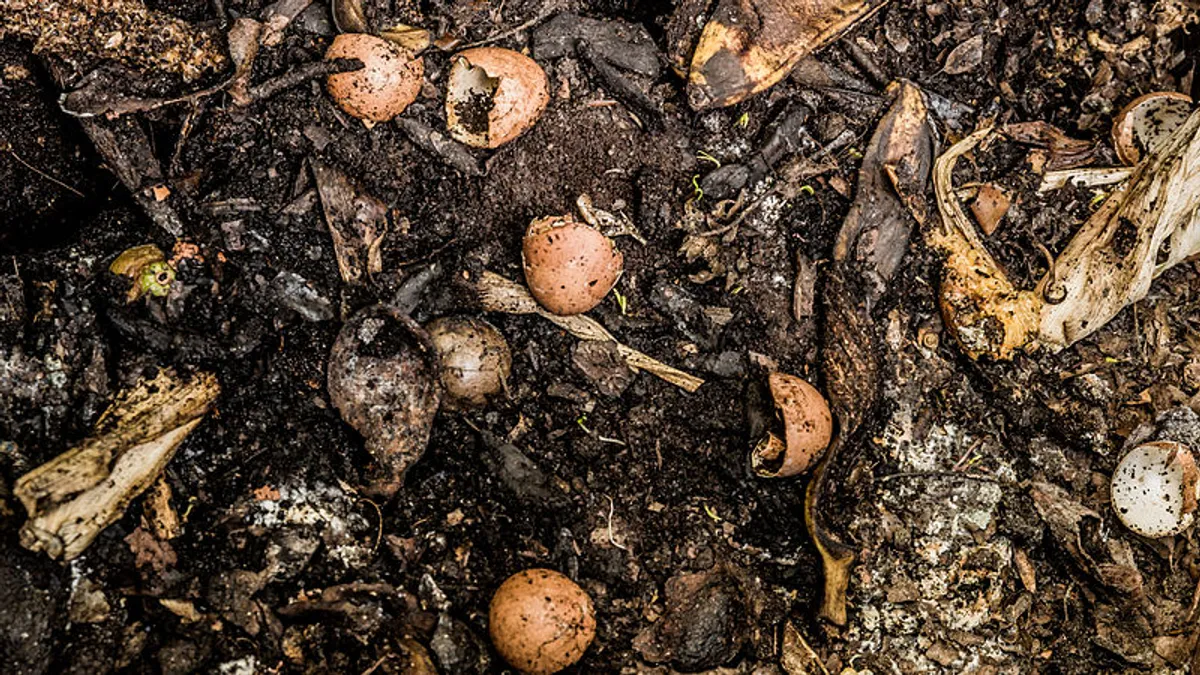CORRECTION: An earlier version of this story implied Portland, OR does not have curbside collection for residential food scraps. Portland currently co-collects food scraps with yard waste.
Dive Brief:
- The city of Lake Oswego, OR recently released details about new resident engagement efforts around curbside organics collection. Their work will be made possible by a grant from the Oregon Department of Environmental Quality (DEQ), as reported by the Lake Oswego Review.
- The $9,500 state grant will help pay for an educational campaign involving four short videos aimed at boosting participation rates. Topics will include how to clean counter-top pails, how to avoid odors and what types of food should go in the bins. The videos will feature a former soccer player from the Portland Timbers and be shared with other communities in the state.
- Through this grant, the DEQ has also asked the city to start quantifying how much material it is co-collecting with yard waste. Republic Services plans to do this by comparing yard waste volumes from past years before the food scrap collection program started.
Dive Insight:
West Coast cities such as San Francisco and Seattle often come to mind when curbside food scrap collection programs are mentioned. Portland, located just north of Lake Oswego, also currently co-collects residential food scraps with yard waste and is considering options to do so that may start with a commercial diversion requirement. Though as evidenced by Lake Oswego's decision to make new educational videos, some residents in the small city are still skeptical even after a year of having the program.
On a state level, Oregon recently saw its diversion rate dip as waste generation rates increased. These shifts are known to happen, and local policies such as a newly increased container redemption rate or a ban on demolishing homes of a certain age in Portland still put the state on a different level than many others when it comes to materials management policies. Now the question is how to translate that general ideology into action with a portion of the waste stream that some residents may still find distasteful to divert.
National campaigns such as "Save the Food" may be helping to change these perceptions, plus more cities are hosting events around cooking and nutrition as part of broader food waste initiatives to help residents understand the other benefits involved. Multiple other Oregon DEQ grants from the same program that is funding Lake Oswego also focus on food recovery by expanding collection or storage infrastructure. With those types of programs, and the city's upcoming educational videos, more residents may soon begin to start thinking differently about their diversion aversion.












